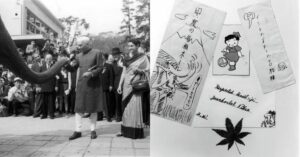Top IIT Inventions, 2019: Eco-Friendly Takeaway Containers, Spouts For Milk Packets & More!
From a solar panel that follows the sun to a smart watch that reminds you to drink water, these brilliant inventions by #IIT students address real-life consumer issues! #Innovation
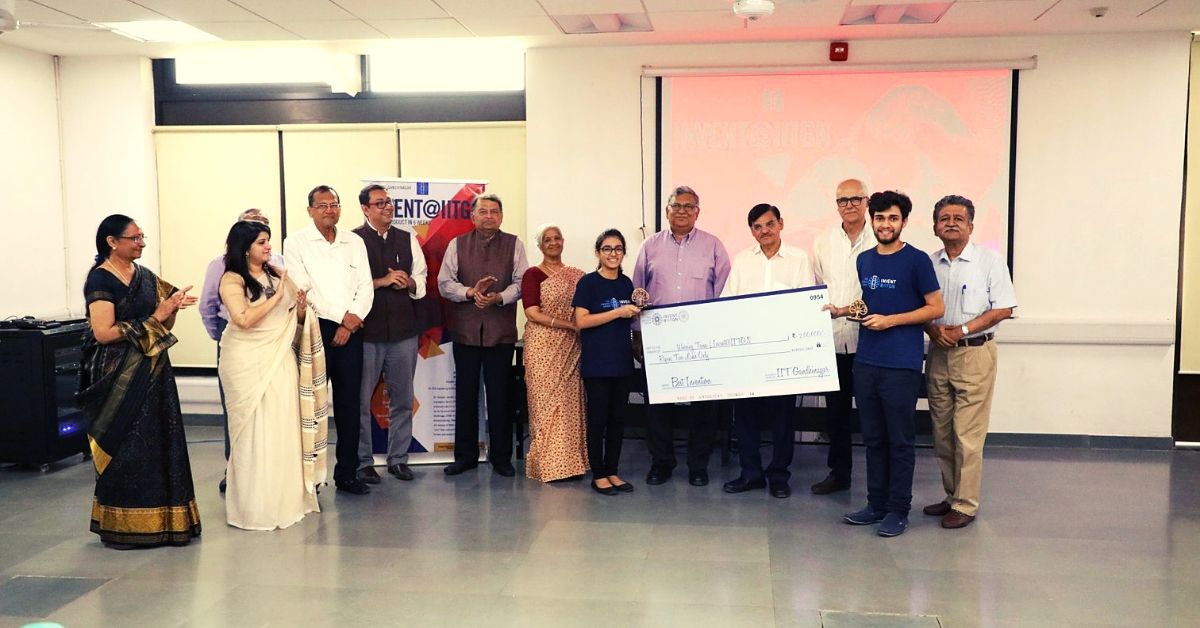
Under the Invent@IITGN, an intensive summer program at IIT-Gandhinagar, 28 students from nine IITs spent six weeks from 16 May to 28 June, 2019, coming up with inventions addressing real-life consumer and societal concerns.
Make your homes greener and eco-friendly by opting for energy-saving devices. Check out The Better India Shop to find out more.
Invent@IITGN is a 6-week annual summer program, based on a similar program in the United States (where it is called Invention Factory™). It was adopted by IITGN during the summer of 2018.
Given a budget of Rs 50,000 for materials, besides free access to an array of equipment available on campus, these students developed their own unique prototypes under the mentorship of professors from IIT-GN and Cooper Union, a New-York based institution.
Besides developing unique prototypes designed to be feasible and practical in terms of cost, safety and physical dimensions, these selected students also learnt how to own their inventions by writing provisional patent applications on the same.
After the six-week grind, prizes were handed out for the top products invented by these students. The Better India takes a look at the top three inventions in descending order.
1) Household Mechanical Solar Tracker: Speaking to The Better India (TBI), Prabal Vashisht and Parul Sangwan of IIT Palakkad, described their invention.
“We invented a mechanism that allows rooftop solar panels to follow the sun as it arcs through the sky, which greatly increases their efficiency. Unlike other solar-tracking mechanisms that use electric motors and batteries, our system is purely mechanical. Thus, it does not consume electricity. Our device is based on the workings of a mechanical clock, an ancient technology proven to be inexpensive, precise, and reliable. Although solar tracking can increase solar panel efficiency by up to 25 per cent, existing tracking mechanisms have not been widely adopted for household use or for use in small-scale solar farms because of the huge installation and maintenance costs associated with the electric components in the existing systems. These systems also consume additional energy to power the motors used to track the sun, reducing their effectiveness,” they write.
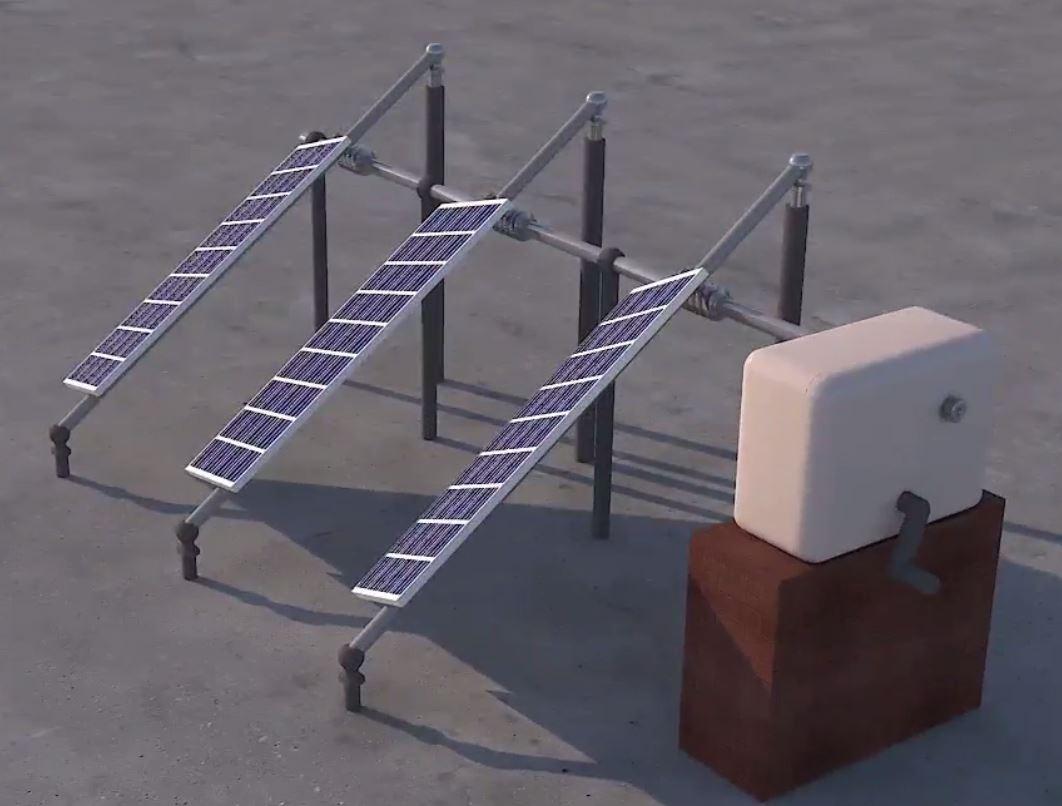
In contrast, their invention is powered through a hand-cranking system whose energy is released over roughly 20 days. It is designed for use in a typical household with a few solar panels on the roof. To function correctly, the device must be synchronized to the local time at the location it is being installed; this is achieved quickly and easily using knobs on the machine in the same way as the time is set on a standard mechanical clock.
“Once installed and cranked up, the solar panels automatically rotate by 15 degrees every hour, following the passing of the sun,” they add.
2) Leak-Proof Eco-Friendly Takeaway Container: Writing to TBI, R. Nambilakshmi of IIT Bombay and Prathmesh Deshmukh of IIT Kharagpur, had this to say:
“Our invention is designed to replace wasteful, single-use plastic containers that are extensively used for the delivery of food to homes or as take-away containers for transporting food from restaurants. Our containers are made from a paper base that is removably bonded to an aluminum lining. The combination is stronger than a typical plastic container while also being leak-proof and completely recyclable. To recycle, the user simply peels off the aluminum lining from the paper base and recycles each component separately. Our container is economical, useful and environmentally-friendly. We believe that our invention has the potential to revolutionise the food packaging industry. Replacing the plastic used in the food packaging business is our small step towards a better earth,” they write.
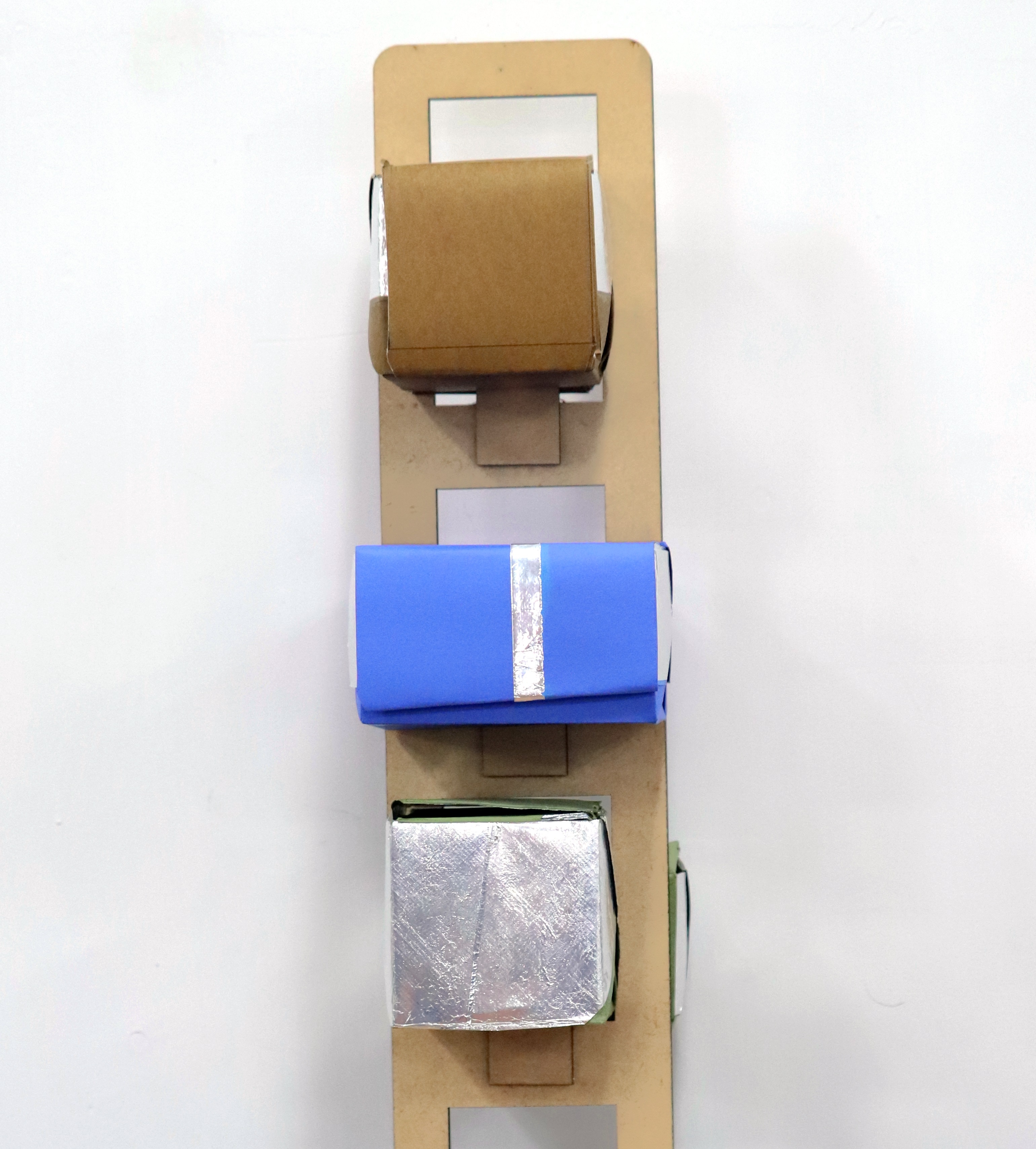
3) Spout-It: Developed by Samruddhi Pataskar and Kalash Nibjiya of IIT Kharagpur, this is a little clip with an integrated nozzle that snaps onto the corner of a plastic packet of milk, ghee, or oil; puncturing it without spillage and allowing the user to pour the liquid inside the packet easily. According to the inventors, “The nozzle has an air-tight cap that, when sealed, allows the user to store the unused portion of liquid within the packet securely, without the need to transfer the liquid to a separate vessel for storage. For example, Spout-It allows a user to drink a portion of milk directly from the packet and then store the rest in the fridge for later use, or she can clip the packet to her backpack without worrying that any milk will spill.”
There are other benefits as well. For starters, it makes the process of rinsing out a packet, which is necessary for recycling, easy.
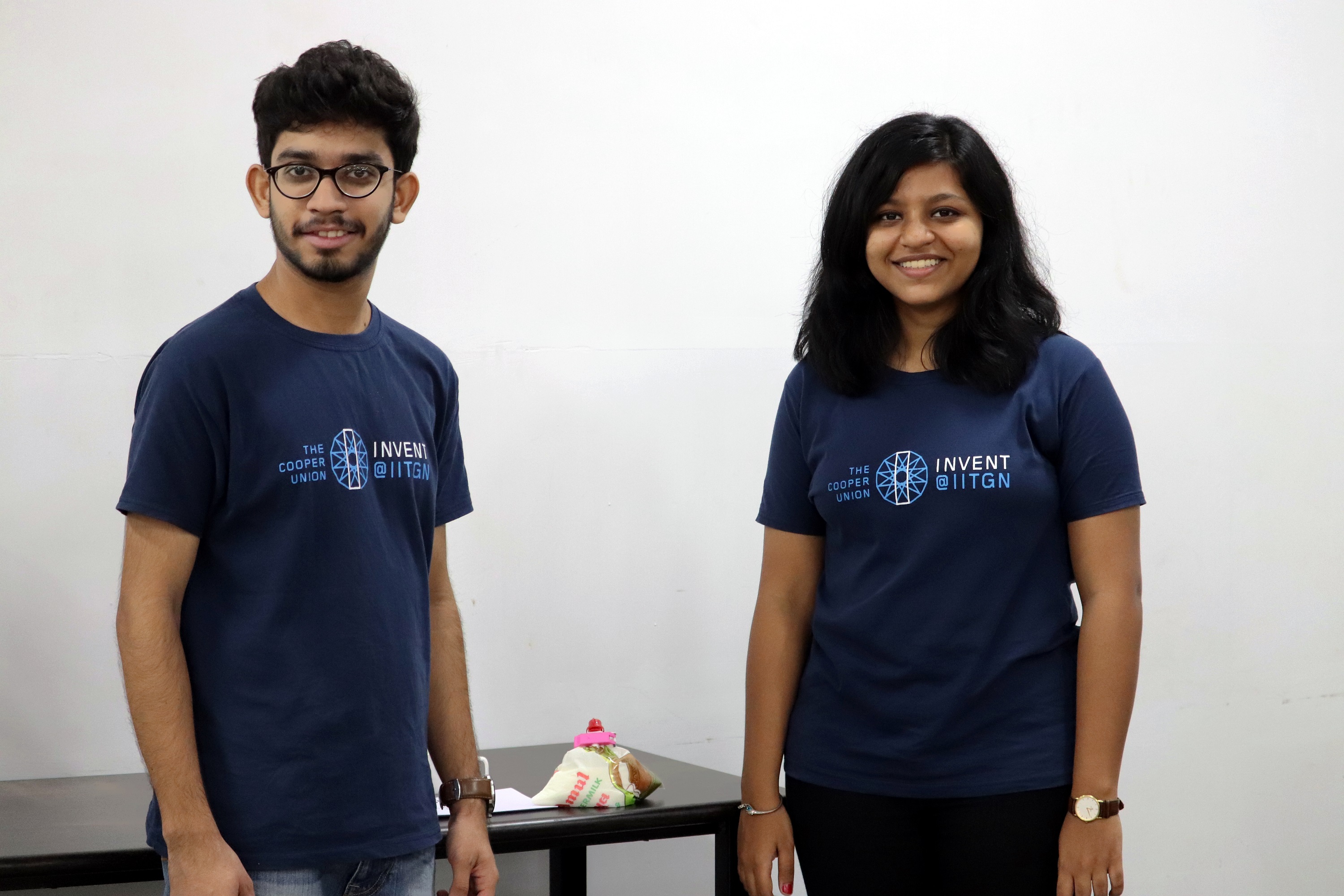
“The user holds the nozzle under running water so there is no more messing around trying to fill a packet through a tiny hole in the corner of a packet. With its robust design, the same spout can be used for many packets. Avoiding waste, it punctures the plastic without removing any material from the packet. It also comes at a low cost and can be made from any food-grade material such as plastic, stainless steel, etc,” they write.
There were other fascinating inventions like a vacuum storage device for farmer carts that would increase the shelf life of vegetables and fruits without the need for refrigeration and a smart watch that monitors for dehydration and, if symptoms are detected, warn users to drink water.
Also Read: IIT Grad Low-Cost Desk-Bag Helps 1 Lakh Poor Students Improve Their Posture!
Lessons learnt
“Right now, we are thinking about working further on this prototype. For the market to accept this product, a lot more work needs to be done,” says Parul Sangwan from IIT-Palakkad, who won the first prize. “After college we would love to bring this into the market, and play our small part in strengthening the renewable energy space in India,” adds her team mater.
“Through the six weeks, we learnt what a patent is all about and how you can file for one. In our education system, we aren’t taught about patents and don’t know how to file them. Many people in India are actually inventors, but just because they don’t have the knowledge of patents, they’re not able to apply for it,” says Prabal Vashisht.

“We gave presentations every week, our work was constantly critiqued, we learnt how to speak in public, how to present yourself, refine our ideas and present it in ways that are understandable to the layman,” adds Parul.
Speaking to TBI, Prof. Eric Lima and Prof. Alan Wolf of Cooper Union, said:
“Each team has a first-hand experience at creating a product that can really help other. They experience the emotional journey of identifying an important problem to solve, wrestling with the countless obstacles in building a viable solution to that problem, the heartbreak of discovering patents and other prior art from others who attempted to solve the same problem, and the joy of breaking through all of the obstacles to create something new and valuable. So, what potential do we see in these students? They have the desire and the potential to change the world!”
With these lessons learnt, their future looks bright indeed.
It is innovations like these that ATL Tinkering Innovation Marathon aims to develop by giving young innovators a platform to take their ideas to products and help solve issues in different fields from agriculture and infrastructure, to environmental conservation and waste management.
Know more about the ATL Tinkering Innovation Marathon here.

(Edited by Saiqua Sultan)
Like this story? Or have something to share? Write to us: [email protected], or connect with us on Facebook and Twitter.
This story made me
-
97
-
121
-
89
-
167
Tell Us More
If you found our story insightful, informative, or even just enjoyable, we invite you to consider making a voluntary payment to support the work we do at The Better India. Your contribution helps us continue producing quality content that educates, inspires, and drives positive change.
Choose one of the payment options below for your contribution-
By paying for the stories you value, you directly contribute to sustaining our efforts focused on making a difference in the world. Together, let's ensure that impactful stories continue to be told and shared, enriching lives and communities alike.
Thank you for your support. Here are some frequently asked questions you might find helpful to know why you are contributing?







